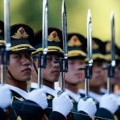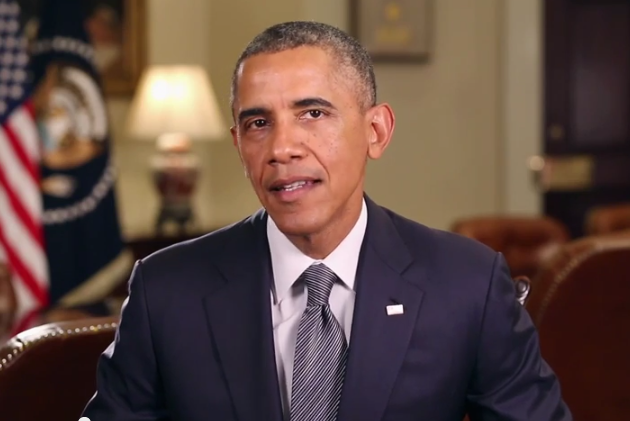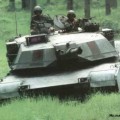For a number of years following the fall of the Soviet Union, the United States faced comparatively weak opponents. Washington’s armed forces were far more advanced than any opponent.
That began to change when China, its technology developed through both its own efforts and the intellectual property theft and outright espionage it successfully engaged in, and the vast financial resources it brought to bear, resulted in a vast, first-rate military. Recently, China has fielded its first aircraft carrier, demonstrated its ability to shoot down satellites, continued to field short, medium, and long-range missiles, successfully tested hypersonic glide vehicles, and modernized and expanded its nuclear capabilities.
Vladimir Putin dramatically upgraded and modernized Russia’s conventional armed forces, as well as fielding the planet’s most potent nuclear arsenal. In the second decade of the 21stcentury, Moscow engaged in a $723 billion modernization program that included procuring 1,700 warplanes, including cutting edge fighters and new air defense batteries. The Voice of Russia reported that Moscow revamped its air force with many new craft. In 2016, Spacewar reported that “A total of eight Borey-class submarines are planned to join the Russian Navy by 2020 … By 2020, the Russian Navy also plans to operate a total of eight Borei-class nuclear-powered ballistic-missile submarines, .…Moscow’s innovative undersea fleet is getting a further upgrade through the development of ‘fifth generation submarines,’ unmanned nuclear vessels with advanced stealth, noise-reduction, automated reconnaissance and warning systems.”
In the far east, The Associated Press noted, the Kremlin’s military will deploy state-of-the art Bal and Bastion anti-ship missile systems and new drones will be deployed. The Arctic region is also receiving substantial attention.
The Beijing and Moscow developments are all the more troubling since the two military giants are virtually united in their opposition to the United States. Russia, the planet’s geographically largest nation, and China, with the world’s largest population, have combined their strengths in an alliance clearly aimed at the United States. The two enormous states have engaged in extensive joint military exercises across the globe, have engaged in sales of military equipment, and have covered for each other’s military misdeeds in diplomatic forums.
In their study of this extraordinary alliance, Douglas Schoen and Melik Kaylan in their book “The Russian-China Axis” described the cooperation between the two giant states: “Militarily, the two nations are cooperating and collaborating like never before…Put simply, this coalition has the potential to permanently and fundamentally alter international relations. It was envisioned as, and it has functioned as, a counterweight to liberal democracy generally and the United States specifically…The Russia-China alliance…already possesses extraordinary power, as it is clear not just with new economic and trade agreements and military cooperation but also in the areas of nuclear proliferation and cyber warfare. Individually and together, Russia and China seek to undermine the social, economic, and political framework of democratic societies and our alliances in a way that has yet to be fully understood…”
Counter-intuitively, while this was occurring, the United States actually reduced military spending during the Obama Administration. The resulting danger is undeniable, and the Pentagon is forced into a catch-up position.
Deputy Defense Secretary David L. Norquist worries that “erosion of our competitive edge against China and Russia continues to be DOD’s central problem. To preserve peace, we must prepare for the high-end fight against near-peer competitors. While counterterrorism will continue as a core challenge, future conflicts with other nations will likely be radically different than wars fought since the collapse of the Soviet Union.”
The House of Representatives, dominated by Democrats, seeks a defense budget considerably lower than the Senate, which has a Republican majority.
Frank Vernuccio serves as editor-in-chief of the New York Analysis of Policy & Government.

















Follow Us